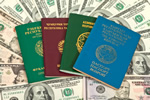Italian healthcare tips for newly arrived expats

Italian healthcare tips for newly arrived expats
Whether you’re emigrating for work reasons, retiring or planning to start a new business overseas, it’s easy to get carried away by the aspects of a particular destination which most appeals to your heart rather than to your head. It’s true that Italy is a seriously beautiful, romantic country with everything your heart desires, but you’ll need to get your brain around practicalities such as accommodation, cost of living and healthcare, especially if you’re older or have children.
Getting to grips with Italy’s healthcare system isn’t rocket science, especially as the country boasts one of the top healthcare systems anywhere in the world. It works in a similar but more user-friendly manner to the UK’s National Health Service and covers everything from free to low-cost healthcare. It’s regionally organised, funded through taxation and local VAT, is known for its high standard of care and can be accessed by expats with regular stay permits as long as they’re registered with their local health authority.
Once you’ve received your national health number and health card, you’re set to receive the services of local general practitioners as well as hospital services if necessary. If you’re living in a rural area, it may be tricky to find an English-speaking GP, with checking your Embassy’s website for its list of English-speaking specialists and local doctors the best idea. Family doctors in Italy are usually found in group surgeries, and offer psychotherapy, gynecology and minor surgery as well as prescriptions and referrals.
Public hospitals’ emergency rooms don’t charge for assistance and are open 24/7 every day of the year. If you can’t travel, dialing 118 gets you an ambulance. Specialist care from examinations to operations is given at public hospitals, and can also be accessed through your general practitioner. Life-saving medicines from pharmacies can be free, or there may be a small co-payment for antibiotics, anti-inflammatory or insulin. Vitamins and paracetamol are always chargeable.
Related Stories:
- Is Kuwaitization the unintended result of the oil price crash? - July 20, 2020
- Expats in Malaysia still banned from overseas travel - July 17, 2020
- HSBC Asia to cut back on internal expat relocations - July 16, 2020
- Tips on integrating for newly-arrived expats - July 15, 2020
Latest News:
- Tips on a trouble-free relocation as an expat overseas - July 20, 2020
- Expats find peace in the covid-19 refuge of Dahab town - July 20, 2020
- Is Kuwaitization the unintended result of the oil price crash? - July 20, 2020
- Expats unhappy abut changes to Korean points-based visa system - July 17, 2020
- Chiang Mai and Bangkok no longer bargain locations for expats - July 17, 2020
- Expats in Malaysia still banned from overseas travel - July 17, 2020
- Vietnam welcomes expats to its safe, affordable lifestyle - July 16, 2020
- Asian tiger economies reach out to expats in Hong Kong - July 16, 2020
- HSBC Asia to cut back on internal expat relocations - July 16, 2020
- Tips on integrating for newly-arrived expats - July 15, 2020


